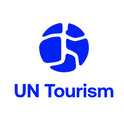UNWTO Connects Tourism and Culture in Nigeria
UNWTO brought together leaders and some of Africa’s best creative minds around a shared vision for advancing sustainable development and opportunity across the continent.




Held in Lagos, Nigeria, the first UNWTO Global Conference on Linking Tourism, Culture and Creative Industries, celebrated the close ties between the two major sectors. Around 40% of all tourists cite culture as the main motivation for travelling, and UNWTO is leading the way in bridging the two areas, including through strategic partnerships with Affiliate Members such as Netflix.
Opening the event, UNWTO Secretary-General Zurab Pololikashvili told delegates: The fortunes of tourism and culture are closely linked. When one thrives, the other does too.
He urged the public and private sectors to work together to create decent jobs, grow investments and embrace innovation and digital transformation.
Tourism and culture ‘in the spotlight’
Representing the Government of Nigeria, Vice President Professor Yemi Osinbajo addressed the Conference, stating: Our desire to diversify our economy and explore other sustainable sources of revenue has led us to rank the tourism, culture and the creative sector among the priority sectors of the economy. Specifically, tourism has been recognized for its resilience and dynamism.
The Vide President also highlighted the ability of music to serve as a “global language”, bringing people together and allowing them to learn more about the “culture and ideas” of others.
Nigeria’s Minister of Tourism, Lai Mohammed, added: Today, more than ever, tourism and the creative industry, due to their economic viability, are in the global spotlight and have their place at the forefront of national and international development agenda.
As well as meeting with the Vice President and the Minister of Tourism, UNWTO Secretary-General Pololikashvili met with the Governor of Lagos, Babajide Olusola Sanwo-Olu, to explore new ways of harnessing the power of culture and tourism to create jobs and business opportunities and to drive inclusive development, both in Nigeria and across Africa. On the sidelines of the Conference, the Secretary-General also met with Aliko Dangote, a Nigerian businessman and philanthropist who has served as a UNWTO Ambassador since 2018.
Investments, youth empowerment and gastronomy
The two-day Conference focused on several of UNWTO’s key strategic objectives, most notably youth empowerment and boosting investments in tourism. On the first day, UNWTO hosted a special interactive session with youth from across Nigeria, fulfilling the commitments made in the Sorrento Call to Action to make young people active participants in decision-making in the sector. Also in Lagos, a panel discussion on Stimulating the Creative Industries for Social Entrepreneurship focused on the importance of supporting MSMEs and innovators in order to enhance competitiveness across the tourism sector.
Against the backdrop of the Global Conference on Linking Tourism, Culture and Creative Industries, UNWTO celebrated the richness of African gastronomy, a growing force within the continent’s tourism sector. A “Flavors of the World” exhibition showcased the very best culinary talent, and local gastronomy star Chef Coco Reinarhz joined a workshop and panel discussion focused on realizing the potential of gastronomy tourism to grow destinations and drive inclusive and sustainable development.
About UN Tourism
The World Tourism Organization (UN Tourism), a United Nations specialised agency, is the leading international organisation with the decisive and central role in promoting the development of responsible, sustainable and universally accessible tourism. It serves as a global forum for tourism policy issues and a practical source of tourism know-how. Its membership includes 166 countries, 6 territories, 2 permanent observers and over 500 Affiliate Members from the private sector.
Media enquires: [email protected]
UN Tourism Communications Department
+34 91 567 8100
UN Tourism
